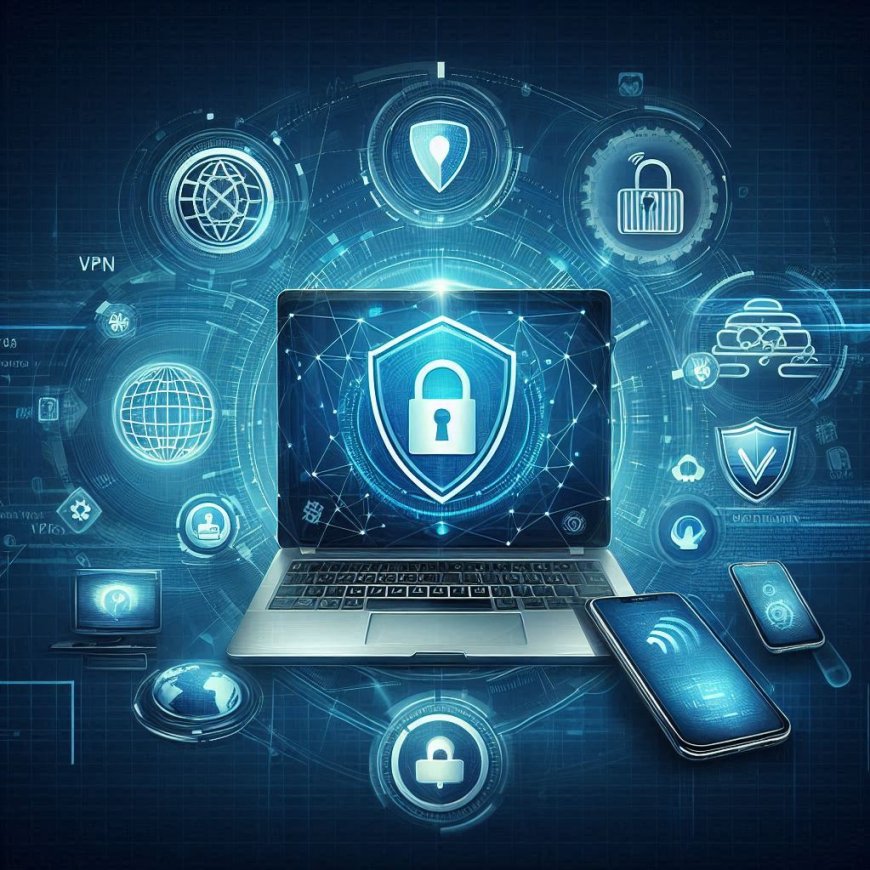How to Secure Your Devices: The Ultimate Guide to Online Safety in 2025
Ensure your digital life remains secure with our ultimate guide to online safety in 2025. Learn essential strategies, practical tips, and advanced security measures to protect your devices and personal data against evolving cyber threats."

Introduction
"In today’s digital age, safeguarding your devices from cyber threats is more crucial than ever. With cyberattacks and data breaches on the rise, this guide provides an in-depth look at how to secure your devices and maintain your online safety in 2025. Whether you’re using a smartphone, tablet, or computer, these best practices will help you build a robust security strategy."
1. Understanding Online Threats
Before diving into protective measures, it’s important to understand the types of threats you face:
- Phishing Attacks: Fraudulent emails or messages designed to steal personal data.
- Malware & Ransomware: Software that damages your device or holds data hostage.
- Data Breaches: Unauthorized access to sensitive information.
- Social Engineering: Manipulative tactics used to extract confidential information.
Country-Specific Resources:
- India: Learn about cyber threats at CERT-IN.
- USA: Explore online safety tips on FTC Online Security.
- UK: Access cybersecurity guides on National Cyber Security Centre.
- Australia: Read about digital safety on Stay Smart Online.
- Canada: Check resources at Get Cyber Safe.
2. Essential Security Measures
Implement these fundamental steps to protect your devices:
-
Use Strong Passwords & a Password Manager: Generate complex passwords and securely store them.
- Tools: LastPass, 1Password.
-
Enable Two-Factor Authentication (2FA): Add a secondary verification layer for account access.
-
Keep Software Updated: Regularly update operating systems, apps, and antivirus software.
-
Encrypt Sensitive Data: Use built-in encryption tools to protect personal data.
Country-Specific Resources:
- India: Explore security tips on Tata Consultancy Services Cyber Blog.
- USA: Learn password strategies at LastPass USA.
- UK: Check security tools on Which? Tech Support.
- Australia: Find safety insights at TechSecure AU.
- Canada: Explore security tools on Kaspersky Canada.
3. Advanced Device Security Strategies
For enhanced protection, consider these advanced techniques:
-
Use a Virtual Private Network (VPN): Encrypt internet traffic for secure browsing, especially on public Wi-Fi.
- Top VPNs: NordVPN, ExpressVPN.
-
Install Reliable Security Software: Use trusted antivirus programs like Kaspersky or Bitdefender for real-time protection.
-
Secure Your Home Network: Change default router passwords, enable WPA3 encryption, and review connected devices.
Country-Specific Resources:
- India: Get VPNs and security software on Flipkart.
- USA: Compare VPNs on CNET.
- UK: Explore antivirus tools on TechRadar UK.
- Australia: Find secure network tips at Bunnings AU.
- Canada: Access home network protection guides at Telus Online Security.
4. Data Protection & Privacy Best Practices
Safeguard your personal data with these tips:
- Regular Backups: Store critical data in the cloud or on external drives.
- Review App Permissions: Frequently audit and limit app access on devices.
- Use Secure Cloud Storage: Choose encrypted services like Google One or Dropbox Business.
Country-Specific Resources:
- India: Check storage and permissions at Google India.
- USA: Explore cloud options on Dropbox USA.
- UK: Read storage reviews on Which? Storage Solutions.
- Australia: Get backup strategies on TechAU.
- Canada: Find cloud solutions at Staples Canada.
5. Common Mistakes to Avoid
Avoid these pitfalls to maintain strong device security:
- Using Default Passwords: Always change default credentials on new devices.
- Neglecting Software Updates: Skipping updates leaves your system vulnerable.
- Overlooking Backup Procedures: Without backups, recovering from cyberattacks is difficult.
FAQs About Device Security
Q1. Is free antivirus software sufficient for complete protection?
Answer: Free antivirus can provide basic protection, but premium software offers advanced features and real-time security.
Q2. How often should I change my passwords?
Answer: Update passwords every 3–6 months, especially for critical accounts.
Q3. Can using a VPN slow down my internet speed?
Answer: Some VPNs may affect speed, but leading providers optimize for minimal impact.
Conclusion
"Securing your devices is an ongoing process, not a one-time setup. By understanding threats, employing essential security measures, and staying informed with advancements in cybersecurity, you can ensure a safer digital experience in 2025 and beyond. Embrace these strategies to protect your personal data and enjoy peace of mind in an increasingly connected world."

 Krishna
Krishna 





